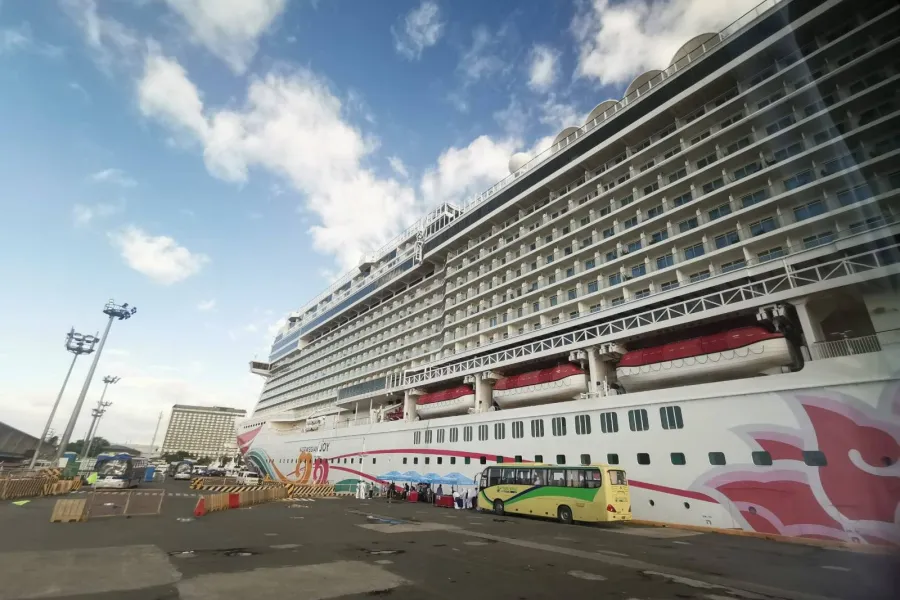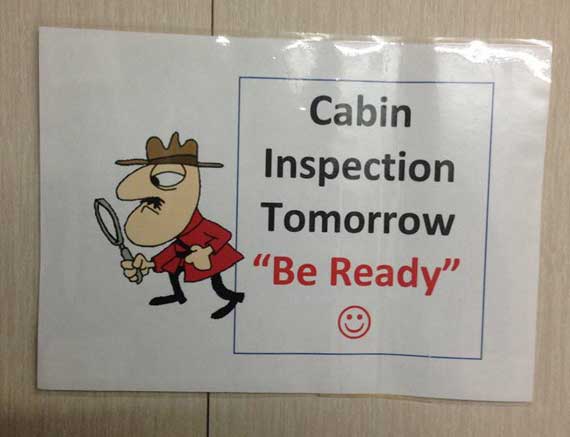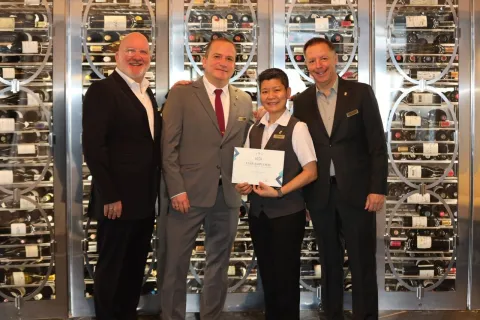
Working on a cruise ship has many visible advantages and disadvantages compared to working on land. As they always say, the grass looks greener in the neighbor's lot. I have spent nearly ten years working on a cruise ship, and I always tried to focus on the positive aspects. One of the main differences between working on the cruise ship and working on the land is that you don't need to commute to work. That is a huge advantage; you don't have to spend 1 hour traveling to get to work.
Maybe the most significant advantage of working on the land is that no matter how stressful a day at work you have, you will still see your friends and family after your work is finished. That is a major advantage compared to working on a cruise ship. There were many days when I felt stressed, anxious, and depressed, I wanted to see my family and friends and have a drink with them, but when you work on a cruise ship, you might need to wait up to 9 months to see your friends and family again.
Whatever perspective you are looking at, the truth is that work on the cruise ship offers numerous unique experiences, and sometimes only that traveling experience justifies the work.
Every job has advantages and disadvantages, and working on cruise ships is no different.
Cruise ship crew life can be intense: long working hours, no days off for months, lots of rules, demanding guests, small living quarters, and little to no privacy.
But working on ships also allows you to travel to places you only dream of while making amazing connections with fellow seafarers from all over the world. Despite all the ups and downs of ship life, I wouldn't change a thing. You can party all night over international waters, fall asleep to the sound of the ocean, and wake up in a completely different country.
You'll often hear crew members joking that they're never coming back, that this is their last contract.
But the truth is that more often than not, we somehow always come crawling back for just one more contract because once you get a taste for life at sea, living anywhere else isn't the same.
Pros of Working on Cruise Ships
You get paid to travel.
This sounds idealistic, but it's true. As crew members, we get paid to travel. Well, not only to travel but also to work. But regardless of the job itself, the fact is that you travel around the world while working on a cruise ship. In my own experience, I traveled to more than 30 countries while working on a cruise ship and visited some of the most beautiful places in the world. This is a strong advantage because we live only once, and the work on a cruise ship is sometimes an excellent way to explore Earth for free.
Little to no cost of living
On ships, you live where you work.
Unlike life on land, no rent must be paid, or monthly utility bills must be taken care of.
All basic living expenses are covered at sea for crew members: accommodation, water, electricity, and food. You don't have to worry about paying your electricity, water, and gas bills.
Free medical care
On the cruise ship, we don't pay for any medical care as it's included in our contracts with the cruise line company.
CV/Resume boost
Working on cruise ships requires a lot of skills that make crew members some of the most eligible employment candidates:
•International experience and the ability to work with a diverse team.
•Skills in customer service and crisis management.
•The capability of learning quickly.
•Most of all, their mental strength makes crew members stand out.
•It's not easy to work long hours for months, isolated from land, friends, and family.
•But if you can do that, there's not much else you're not psychologically capable of.

The Cons of Working on Cruise Ships
•No days off.
•On ships, weekends and holidays don't exist.
•You work every day of the entire contract and have hours off between shifts each day.
•On land, you can go hard on a Friday night and have a couple of days to recover.
•On ships, you still have to get up and go to work the next day.
You work long hours.
The most I ever clocked in a day was about 15 hours, but this will vary according to the job position and possibly whether or not it's a busy cruise.
Most crew members work anywhere from 9-11+ hours daily, the average amount being on the higher end of the spectrum.
Shifts are also split, so you might start work in the morning and not finish for the day until late at night.
You're on call 24/7
Every crew member is responsible for responding to designated emergencies: medical, fire, security threats, man overboard, etc.
No matter where you are or what time it is, when the announcement is made, you have roughly seven minutes to get to your emergency station.
In the shower? Better get dressed. On the other side of the ship? Run.
In my three years onboard, I've been woken four times in the early morning hours between 2-5 a.m. to my emergency call, which I then had to run up ten decks and the entire length of the ship to reach my response station.
And once the emergency was over, I still had to go to work at the regularly scheduled time just a few hours later.
Small living quarters

If you think guest cabins are small, wait until you see what crew cabins look like.
Your room will generally be small unless you're a higher-ranked staff or officer.
Most crew typically live with one other roommate in a cabin that is just large enough for the absolute basics: a bunked bed, a small table with a couple of dresser drawers and shelves, two small wardrobe closets, and a restroom where you can shit, shower, and shave all at the same time.

If you're a taller or larger person, crew cabins can be claustrophobic inducing and extremely uncomfortable.
It's a bit military-esque

Everything is highly regulated, and there are a lot of rules:
What you're allowed to do.
Where you're allowed to be.
Even what you're allowed to wear.
There's a dress code for everything: day, night, formal, smart casual, all black.
Cabins are inspected regularly, and beds must be made. If we fail, our supervisors are notified.

Disciplinary action is super formal: verbal warnings, written warnings, hearings with the master (or staff captain), and dismissal.
Your privileges depend on how many stripes you have (your rank).
There are typically three tiers in the ship's social hierarchy: officer, staff, and crew members.
Most of the ships have separate messes, one for officers and staff and another for the crew.
Depending on your position, you may be allowed to be seen around the ship in public areas such as the shops or eating at one of the restaurants.
You're always "on stage."
Prepare to smile a lot and always be "on" around guests.
Even if you're off duty and walking through public areas of the ship, you are still a working employee if guests stop you from asking you a question or need help. Sometimes, I would go to my cabin to massage my own cheeks, too much pain from fake smiling to the guests.
Ship life affects your hormones and health.
Blame it on the recycled air, the desalinated water, the fluctuating food quality, high stress, or close living quarters, but your health may take a hit while working on ships.
Internet is limited and expensive

I've had so many guests ask me if crew members get free Wi-Fi and the truth is that our internet packages actually tend to be more expensive than the guests'.
While other package options exist for more time or over an extended period, the price per hour is generally about the same.
You rarely have control over your assignments.
For many crew positions, you won't be able to request a specific ship or itinerary for several years.
And even then, your preference request might not be granted.
You usually stay with the same ship for the entirety of your contract, but there are cases where you might be abruptly transferred to another ship, and there's nothing you can do about it.
They might give you less than 24 hours' notice.
Long-term relationships are difficult to sustain
Most relationships between crew members are short and limited to the length of the contract.
While getting a following ship assignment together is possible, it is very difficult and often unlikely.
Of course, this varies by company, but in my experience, couples need to submit official paperwork that proves they are in a formal, legally binding relationship. Even then, there is no guarantee that crew couples can be placed on the same ship.
Overall, working on the cruise ship is an unbelievably valuable experience. It is beautiful and bitter at the same time.
Crew Insights
Articles and experiences shared by crew members working on cruise ship. Find out more about ship life at sea together with tips and advices for first time crew members and cruise oldtimers.












